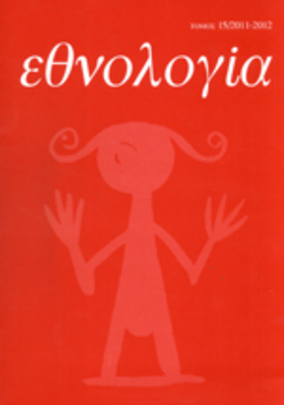Φονταμενταλισμός και πνευματοληψία : θεραπεία και μέθεξη στο πλαίσιο μιας πεντηκοστιανής κοινότητας στην Ελλάδα
Part of : Εθνολογία : περιοδική έκδοση της Ελληνικής Εταιρείας Εθνολογίας ; Vol.5, No.1-2, 1996, pages 115-179
Issue:
Pages:
115-179
Parallel Title:
Fundamentalism and spirit-possession : healing and communitas in a pentecostal community in Greece
Author:
Abstract:
The «Free Apostolic Church of Pentecost» of Greece is analyzed as a community of affliction and a cult of affliction, which revolves around possession of the convert by the Holy Spirit. Victor Turner’s theory of communitas is presented in the context of Pentecostalism as a cult of affliction. It is argued that conversion offers a way out of a pre-existing crisis of personal impasse for the neophyte. Conversion entails the psychomachic experience of spiritual rebirth and repentance, and is achieved through the evangelistic efforts of pentecostal proselytizers which create communitas among the brethren.Detailed cases of recruitment in the ranks of Pentecostalism are analyzed to study the personal itinerary of converts. It is shown that the pre-existing crisis of personal impasse destroys the person’s «project» and leads them towards acceptance of «God’s project» as a solution to their personal impasse. This new project may actually be a new and foreign code vis-a-vis the convert’s pre-existing cultural baggage.Thus, Pentecostalism has to be seen as a new cult of affliction within Greece. This understanding suggests a critique of the received anthropological wisdom concerning spirit possession. Briefly, anthropologists think of spirit possession as learned behaviour, and, hence, as culture. The problem, as presented here, though, is to understand the manner in which people who have not been socialized within a pentecostal community apprehend and recognize the experience of possession by the Holy Spirit as a solution to their personal problems.Victor Turner offered his theory of communitas as a theory of intensified sociality. The extreme form of ecstatic interaction between human beings is a moment in which the process of interpretation is arrested, one’s tongue «stumbles», the semiotic chain dissolves. In the context of spontaneous communitas within such religious movements, the «other» is seen as nonthreatening for the born-again convert. Fundamentalism - in this case, Christian fundamentalism - is the result of institutionalization of such «dionysian» practices. The puritanical morality of fundamentalism aims at the obliteration of the conditions which are seen as producing crisis in the first place, i.e., the conditions of interpersonal antagonism and conflict due to envy and jealousy.
Subject (LC):
Keywords:
Ελλάς
Notes:
Περιέχει βιβλιογραφία




